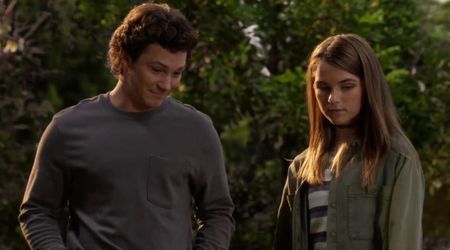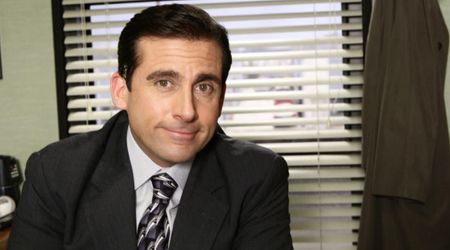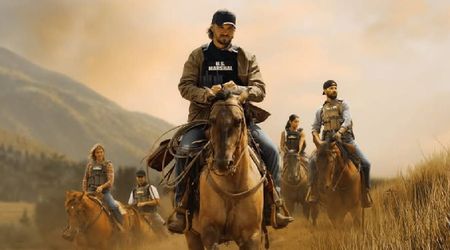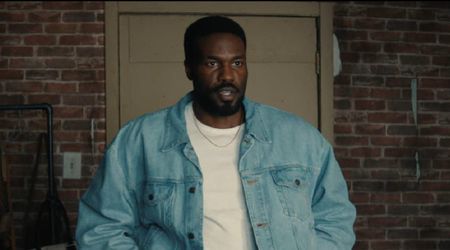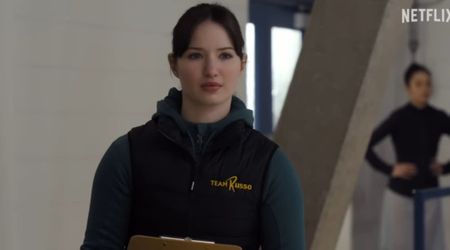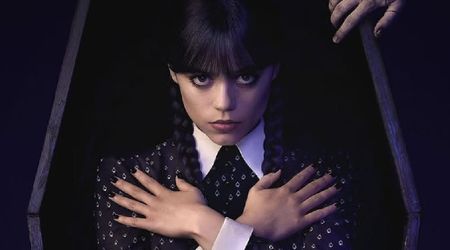Umberto Eco adaptation 'The Name of the Rose' subtly depicts the violent religious ideals of the medieval era

There are shows which take us back in history just to pinpoint all we are missing in our age, and then there are shows, such as the Giacomo Battiato-directed, 'The Name of the Rose' which takes us back in time to show exactly all which have not changed.
Adapted from Umberto Eco's 1980 debut novel of the same title, the show revolved around the murder mysteries which gripped a 1327 Northern Italy monastery by its throat. Franciscan friar William of Baskerville (played by John Turturro) and his young novice Adso of Melk (played by Damian Hardung) find themselves at the center of a time torn between cultural upheaval and religious dominance.
The show, which almost remains true to its source of adaptation, at first pulls you in with a solemn yet brilliantly lit Italy and then reminds why you started watching it in the first place - a very Eco-esque enigma that compels you to remain in your seat till the very end.
The eight-episode miniseries follows William and Adso, as they arrive in an isolated Benedictine abbey to participate in a dispute over poverty between representatives of the Franciscan Order and the Avignon papacy. This very scene sets the stage for the rest of the story, as from here, through William and Adso we get a clear picture of what medieval Italy was submerged in - orthodox ideals and ancient, irrational believes.

Certainly, the storyline continues to remain gripping, just like its source material, but there are factors which have made 'The Name of the Rose' a must-watch in an age constantly trying to move away from the shackles of religion.
Moreover, the show might open with a gory battle scene but once it enters the actual storyline, physical violence is shoved way behind the cupboard as each scene begins to pick up layers of tangled subplots, convoluted characters and most of all, it provides viewers with a rear-view mirror in order to keep an eye on strange encounters they might just miss, if not observed well.

What is truly charming about the show is its subtle depiction of corruption. Unlike 'Game of Thrones' which heavily relies on nudity, gory war sequences, and has completely done away with any form of modesty, 'The Name of the Rose' is a show which will compel you to look beyond what is shown.
The entire show is packaged as a kind of dexterity of the mind more than the callousness of loose action. It can be said the adrenaline-rush while watching 'The Name of the Rose' might be very similar for some 'Game of Thrones' fans because the former is just as nasty in its depiction of religion as a political weapon as the latter is shameless in its realism of religion.

Italian TV shows have finally achieved what their films managed to achieve a very long time ago, and 'The Name of The Rose' has somewhat managed to live up to the standards of 'I Medici' and 'My Brilliant Friend', the two other Italian TV shows that have gained immense international attention.
In the case of 'The Name of the Rose', a star-studded cast also does the trick. Turturro, the actor who has appeared in over 60 films in his career, and is known to have often worked with the Coen Brothers ('The Big Lebowski' in 1998, 'O Brother, Where Art Thou?' in 2000), gives us a rather intelligent and benevolent William of Baskerville. He has shed away his comic relief and has stuck to portraying a deeply observing saint who knows he is anything but one.
Similarly, Peter Davison's narration from the point of view of an old Adso, once again adds a nostalgic tinge to the periodical plot. His droning voice which walks us through the entire story acts as the fourth wall and 'The Name of the Rose' breaks it too often. This is a show worth all your time, as it comes to the U.S. on Sundance TV May 1, at 11 p.m. ET/PT.

